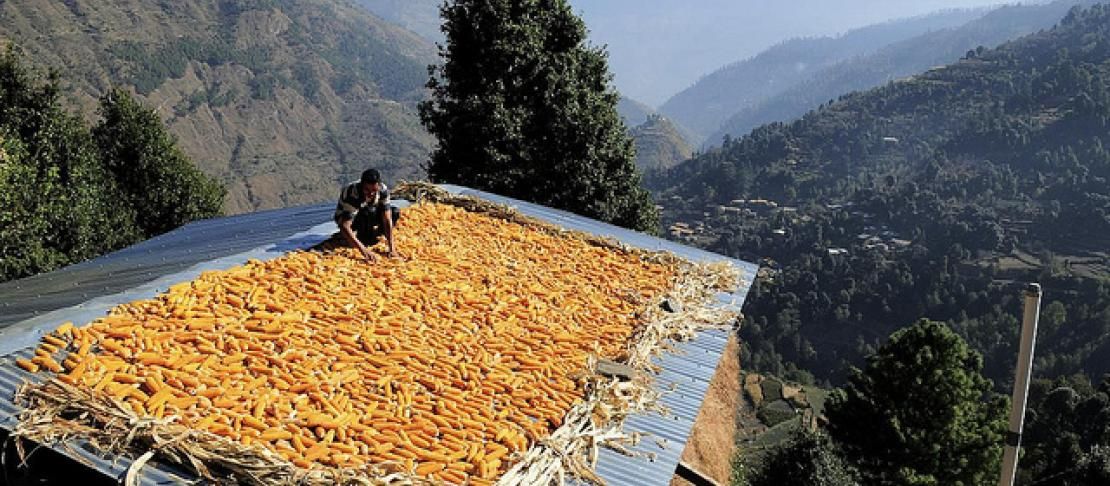Domains, incentives and institutions for equitable local adaptation planning in wheat and maize systems

Project description
The uptake and potential benefits of climate-smart agricultural (CSA) practices have been very encouraging. Both farmer-level adoption of CSA interventions as well as state-level policy response is demonstrating the validity of the concept. However, the large-scale adoption of CSA interventions needs precise knowledge and a mainstreaming strategy for local-level targeting and implementation. With this in mind, this research built evidence that supports the development of an enabling environment for scaling up CSA practices. It built on lessons emerging from CCAFS climate-smart villages on the Local Adaptation Plan for Action (LAPA) frameworks, mainstreaming incentives and institutions to accelerate adoption of CSA interventions.
This project involved an iterative process that scans, defines and addresses opportunities and barriers for developing, piloting and scaling business cases for CSA practices.
Project activities included:
- Guidelines, capacity, governance, recommendation domains and synergies for LAPA and Climate-Smart Villages CSVs) for scaling climate-smart agricultural practices (CSAPs) (until 2015)
- Developing & defining innovative business models and open innovation platforms for scaling
- Develop incentive based policy instruments that influence the trajectories of farmer’s households towards better adaptation to climate change (until 2015)
Furthermore, the following research were carried out:
- Innovation platforms were established around CSA practices at two levels to validate climate-smart business cases.
- Social, environmental, financial and climate vulnerability assessment tools were used to identify drivers and barriers for scaling out CSA business cases.
- Robust science-based evidence on CSA interventions fed into sub-national policies that influence the trajectories of farmer households towards better adaptation to climate change.
- Capacity building of NARES, private sector and NGOs resulted in mechanisms for better market outreach and targeting investments in CSA intervention.
Outputs
- Guidelines for LAPA emerging from the case studies.
- Innovation platforms established at two levels: involving local actors and higher governance actors such as investors and national research institutes, to capture and further develop agri-business opportunities at the local level and to elaborate ways for scaling-up these business opportunities to a higher spatial levels.
- Incentive based policy instruments recommended based on robust science-based evidence to feed into local and sub-national policy.
Outcomes
The guidelines for LAPA that emerged from this research help to identify CSA practices, business cases, incentives and institutional arrangements that encourage actors at all levels in India, Nepal and Bangladesh to invest in and adopt CSA interventions.
By 2019, enabling mechanisms and environments for scaling-up CSA informed by the project will lead to:
- A 15% annual increase in investments in CSA by local and sub-national governments.
- Enhanced participation of the private sector in the scaling out of CSA with benefits for 1 million rural and urban men- and women-headed households in those India, Nepal and Bangladesh.
- At least 10 International, regional and national developmental organizations using the CCAFS-informed tools, practices and policies for the prioritization of CSA.
Partners
- International Food Policy Research Institute (IFPRI)
- International Crops Research Institute for the Semi-Arid Tropics (ICRISAT)
Further information
For further information, please contact the project leader, M.L. Jat (CCAFS-CIMMYT) at m.jat@cgiar.org.
Currently, this project is part of: Developing climate-smart agricultural practices in South Asia.